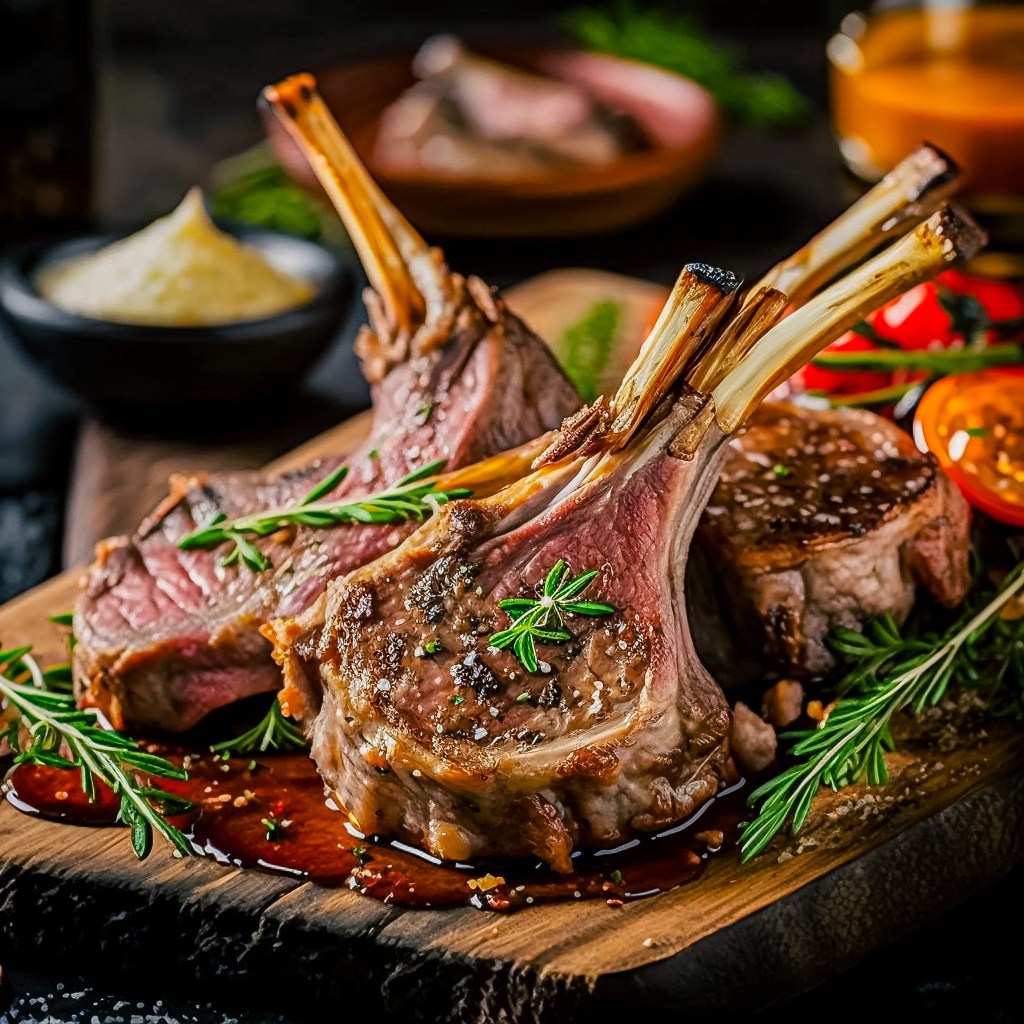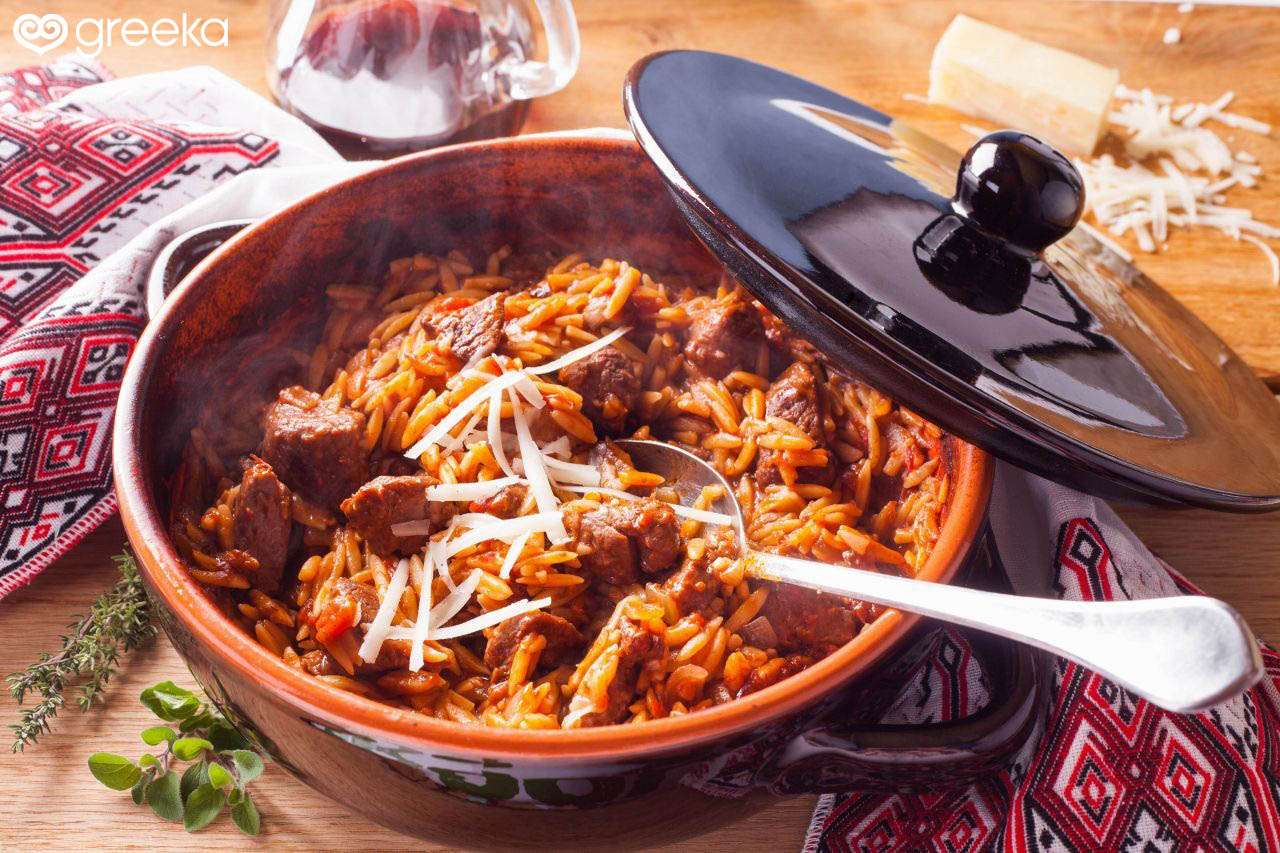Greece: A Feast for the Senses (Food & Drink Guide)

Introduction of Greek Cuisine
Introduction to Traditional Greek Dishes
Greek cuisine is known for its use of fresh ingredients, herbs, and olive oil. Two of the most popular traditional Greek dishes are Moussaka and Spanakopita. Moussaka is a layered dish made with eggplant, minced meat, and béchamel sauce, while Spanakopita is a savoury pie filled with spinach, feta cheese, and herbs. Both dishes showcase the flavours and textures that are characteristic of Greek cooking.
Historical Influences on Greek Food
Greek cuisine has been influenced by various civilizations throughout history. The Mediterranean climate has also significantly shaped the ingredients used in Greek cooking. Due to the region's agricultural history, olives, grapes, wheat, and herbs are staples in Greek cuisine.
The Byzantine Empire, Ottoman Empire, and Venetian Republic have all left their mark on Greek food by introducing different spices, cooking techniques, and ingredients.

Ingredients in Greek Cooking
Olive Oil: The Liquid Gold of Greece
In Greek cooking, olive oil reigns supreme as the quintessential ingredient, often dubbed Greece's 'liquid gold'. This versatile oil is used in almost every aspect of Greek cuisine, from sautéing vegetables to dressing salads and marinating meats.
The rich, fruity flavour of Greek olive oil adds depth and complexity to dishes while also providing numerous health benefits. Whether drizzling it over feta cheese or using it to roast vegetables, olive oil is an indispensable element in creating authentic Greek flavours.
Feta Cheese and Kalamata Olives in Greek Recipes
Feta cheese and Kalamata olives are iconic ingredients in Greek recipes, known for their distinct flavours and textures. Feta, a crumbly and tangy cheese made from sheep's milk, is a versatile dairy product that complements salads, pastries, and meat dishes.
On the other hand, Kalamata olives, with their rich, briny taste, add a burst of Mediterranean essence to various Greek dishes, from salads to pasta sauces. Together, feta cheese and Kalamata olives elevate the taste profiles of dishes, offering a perfect balance of salty and savoury notes that are synonymous with Greek gastronomy.

Greek Desserts and Sweets
Baklava: The Iconic Greek Dessert
Regarding Greek desserts, one cannot overlook the iconic baklava. Layers of crispy phyllo dough, nuts, and sweet syrup come together to create this indulgent treat that encapsulates the essence of Greek culinary tradition. Baklava's rich and sticky texture, combined with the fragrant flavours of cinnamon and cloves, makes it a beloved dessert widely enjoyed across Greece and beyond.
Whether enjoyed with a cup of strong Greek coffee or as a sweet ending to a hearty meal, baklava is a decadent delight that satisfies every sweet craving.
Loukoumades and Galaktoboureko: Sweet Treats from Greece
Embrace the sweet side of Greek cuisine with loukoumades and galaktoboureko, two delectable treats that showcase the diversity of Greek desserts. Loukoumades are fluffy, deep-fried dough balls drizzled with honey and sprinkled with cinnamon, providing a heavenly combination of crispy and syrupy textures.
On the other hand, galaktoboureko features layers of crispy phyllo dough filled with creamy semolina custard and drenched in sweet syrup, offering a luscious contrast of textures and flavours. Indulge in these sweet delights to experience the delectable richness and sweetness that define Greek desserts.

Regional Variations in Greek Food
Cretan Cuisine: Delights from the Island of Crete
When it comes to Cretan cuisine, you can expect to indulge in many fresh and flavorful dishes influenced by the island's rich agricultural heritage. The cuisine of Crete emphasizes the use of locally sourced ingredients such as olive oil, herbs, and vegetables to create dishes that are not only delicious but also nutritious.
From hearty stews like "stifado" made with tender chunks of meat, tomatoes, and spices to savoury pies filled with wild greens and feta cheese, Cretan cuisine offers a diverse range of flavours that celebrate the bounty of the land and sea.
Ionian and Aegean Influences on Greek Coastal Cuisine
Venture along the coastlines of Greece, and you'll discover the culinary influences of the Ionian and Aegean seas reflected in the coastal cuisine. Fresh seafood takes centre stage in dishes like "psarosoupa," a flavorful fish soup enriched with tomatoes, herbs, and a hint of citrus. Grilled octopus marinated in olive oil and herbs, served with a squeeze of lemon, showcases the simplicity and freshness of Aegean flavours.
In the Ionian islands, you'll savour dishes like "bourdeto," a spicy fish stew that brings together the flavours of the sea with locally grown chilli peppers for a uniquely vibrant taste experience. Whether you find yourself dining in a seaside tavern overlooking crystal-clear waters or enjoying a meal in a quaint fishing village, the coastal cuisine of Greece promises a delightful culinary journey.

Greek Dining Etiquette
Greek Dining Customs and Traditions
When experiencing regional variations in Greek food, it's essential to appreciate the customs and traditions surrounding Greek dining. Greeks value sharing meals with family and friends, considering it a time for bonding and connection. In traditional Greek households, meals are often accompanied by lively conversations lasting for hours.
It's also customary to greet others with a warm "Kalimera" (good morning), "Kalispera" (good evening), or "Kalinihta" (good night) before sitting down to eat. Respect for elders is paramount, with younger individuals expected to offer the first bite of food to the oldest person at the table as a sign of reverence and gratitude.
Taverna Culture: Dining Experience in Greece
When dining in Greece, especially in coastal regions like Crete or the Ionian islands, you'll likely find yourself immersed in the vibrant taverna culture that defines Greek dining experiences. Tavernas are casual eateries where locals and tourists alike gather to enjoy authentic Greek cuisine in a relaxed setting. Expect to be greeted warmly by the staff and encouraged to savour each dish slowly, appreciating the flavours and textures that comprise a traditional Greek meal.
Sharing small plates of meze (appetizers) with your dining companions is common, fostering a sense of camaraderie and conviviality around the table. Whether you're sampling fresh seafood by the sea or indulging in hearty stews in a cosy taverna, the dining experience in Greece is sure to leave a lasting impression.

Greek Wine and Spirits
Retsina and Ouzo: Greek Alcoholic Beverages
When experiencing regional variations in Greek beverages, it's essential to appreciate the unique offerings like Retsina and Ouzo. Let's take a look at the differences between the two:
| Criteria | Retsina | Ouzo |
|---|---|---|
| Type | Wine flavoured with pine resin | Anise-flavoured alcoholic spirit |
| Usage | Often enjoyed as an aperitif or with meze | Typically served as a digestif or with sea food |
| Flavor | Earthy pine notes with citrus undertones | Licorice flavour with a hint of sweetness |
| Popular Brands | Kourtaki, Malamatina | Ouzo Plomari, Ouzo 12 |
| Alcohol Content | Around 11-12% ABV | Varies but usually 37.5-50% ABV |
Wine Regions in Greece and Greek Wine Pairing
When it comes to Greek wines, exploring the diverse wine regions is a delightful journey. Here are some notable regions and their characteristics:
| Region | Notable Wines | Flavor Profile |
|---|---|---|
| Nemea | Agiorgitiko (St. George) | Rich, full-bodied reds |
| Santorini | Assyrtiko | Crisp, acidic whites with mineral notes |
| Macedonia | Xinomavro | Robust, tannic reds with ageing potential |
| Crete | Vidiano | Aromatic whites with floral and fruity notes |
Pairing these wines with Greek cuisine enhances the dining experience. Consider these classic pairings:
- Agiorgitiko with Lamb Souvlaki
- Assyrtiko with Grilled Seafood
- Xinomavro with Moussaka
- Vidiano with Feta Cheese Salad

Health Benefits of Greek Diet
Mediterranean Diet: Health Benefits and Nutrition
The Mediterranean diet, which is prominent in Greek cuisine, is well-known for its health benefits. This diet emphasizes consuming fruits, vegetables, whole grains, nuts, seeds, and olive oil. Fish and poultry are preferred over red meat, and dairy products are consumed in moderation.
Red wine is also enjoyed moderately. This diet is high in antioxidants, healthy fats, and vitamins, making it beneficial for heart health, weight management, and overall well-being.
Role of Fresh Produce and Herbs in Greek Cuisine
Fresh produce and herbs play a vital role in Greek cuisine, enhancing both the flavour and nutritional value of dishes. Vegetables like tomatoes, cucumbers, peppers, and olives are staples in many Greek recipes, providing essential vitamins and minerals.
Herbs such as oregano, mint, dill, and parsley are commonly used to season dishes, adding depth and a fresh aroma. These ingredients contribute to the delicious taste of Greek meals and offer health benefits such as anti-inflammatory and antioxidant properties.
